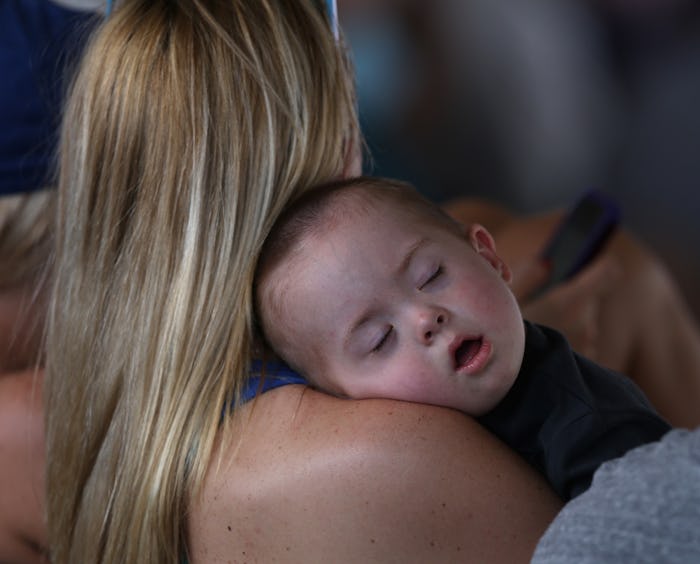Life

Should Babies Sleep In Their Own Rooms?
A new study on the potential benefits of giving up room-sharing is challenging American Academy of Pediatrics (AAP) recommendations. According to the results of a survey of 230 first-time moms out of Pennsylvania State University, babies will sleep longer in their own rooms. Still, the resulting conclusion of the study's lead — that babies should stop spending the night in their parents' room by the time their six months old — counters the AAP recommendation that, ideally, babies only begin sleeping solo when they've reached their first birthdays.
It's important to note that because the study's respondents were whiter and wealthier (family incomes for half were $75,000 or more, according to HealthDay News), they did not accurately reflect the American population. Still, what their survey, published in the AAP News & Journals Gateway, revealed about infant sleep was too compelling to disregard: 4-month-olds who slept alone had stretches of uninterrupted sleep that outpaced those of their room-sharing peers by an average of 45 minutes, although all the babies this age slept for about the same amount of time in general. On the other hand, 9-month-olds who slept alone snoozed for 40 minutes longer at night than room-sharers.
The outcomes appeared to endure, as well: If a baby had slept alone by the time she was 9 months old, she slept 45 minutes longer at night by the time she was 2-and-a-half.
Still, the main reason that the AAP suggests that babies sleep in the same room with their parents (but not the same bed) for up to a year after birth is to decrease the likelihood of SIDS. The pediatrics organization acknowledges that this is most critical during the first six months of life, when most cases of SIDS and other sleep-related deaths occur. Sleeping in the same room with parents slashes the risk of SIDS by as much as 50 percent.
But Ian Paul, the chief of academic general pediatrics at the Penn State College of Medicine and one of the authors of the study, believes that available information does not justify continuing room-sharing beyond six months, according to CNN. Moving the babies to a room of their own could help to avoid the onset of separation anxiety and allow them to sleep more soundly and for longer periods of time, he said. In an interview with HealthDay News, he added that babies who sleep in the same room with their parents are more likely to end up bed-sharing as well — and that can be quite dangerous.
Regardless, there's also an argument to be made in favor of room-sharing, despite the extra shut-eye that moving a baby out could offer both parents and babies. Rachel Moon, a professor of pediatrics at the University of Virginia who co-authored the AAP's latest recommendation, told CNN the finding that sleeping for longer uninterrupted stretches may actually work to the solo-sleeping babies' detriment. "We think that a lot of the problems with SIDS is that babies don't arouse," she said. As for the AAP stat that SIDS risk goes down by as much as half when newborns slumber with their parents close by? Pediatrician Ari Brown previously told CNN that it could come down to the parents' "sixth sense" to recognize when something strange is happening and act.
The Penn State study found that the babies who slept alone were more likely to establish a bedtime routine and stick to it, including falling asleep by 8 p.m. That's obviously a perk, and means that those who advocate for room-sharing and those who question its usefulness could probably go back and forth on this forever.
So, it may be a smart move for new parents to consider the advice of pediatrician Lane France. Writing for Baby Center, France said that it could be a good move to room-share for a year, but acknowledged that different arrangements work for different families. If your family discovers that putting some nighttime distance between parents and child meets its needs best, simply make sure to keep the baby monitor on.